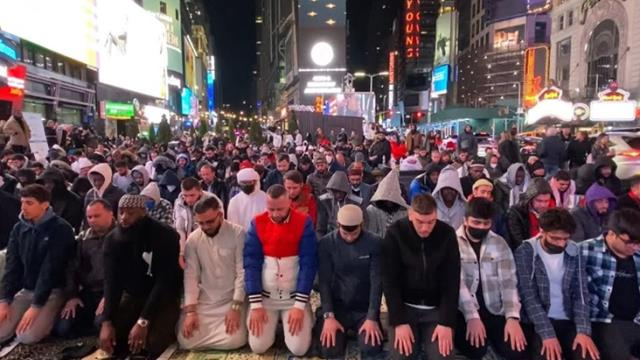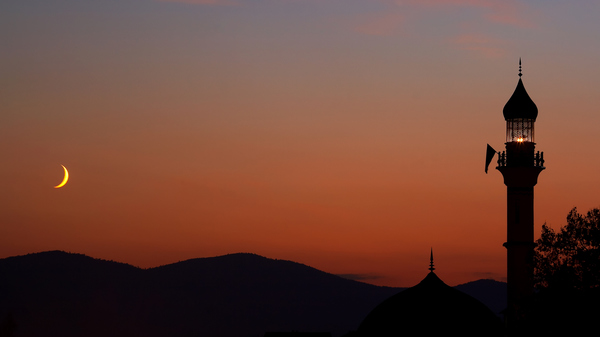By Yousef Wahba
Ramadan is the ninth month of the Islamic calendar. It is the same month that the Quran was revealed to Prophet Muhammad (peace be upon him), and for Muslims, it’s a month of mercy and forgiveness, one that cleanses your soul, and gives you time to reflect on yourself and your relationship with God.
During this holy month, Muslims fast from sunrise to sunset as fasting for the month is one of the five pillars of Islam — and yes, that’s with no water, as this question never fails to be asked. This beautiful month departs us with the arrival of Eid al-Fitr, one of two Muslim holidays, where after a month of hardship comes happiness and rejoicing.
Another question that comes up is how does this holy month affect our day-to-day lives as Muslims? Many might be a little overwhelmed by the idea of fasting from sunrise to sunset, however, most Muslims would agree that after the first couple of days, it becomes as light as a normal day, but with a little tweaking.
Due to this fast, we have two main meals of the day: iftar (at sunset) and suhoor (before sunrise). The timing of these meals coupled with fasting may alter many people’s sleep schedule, including mine. On weekends, I prefer to wake up at around 4 p.m. and go to sleep at 6 a.m., which is sunrise. This means that most of my day is not actually day, but night!

However, during school days (I am a high school student), things may differ greatly. As I need to wake up at about 8 a.m. but barely get any sleep at night, I have to sleep after school — and wake up again for iftar. It’s a very messy situation at first look, but I actually quite enjoy it. One of the perks as well is that I find that my focus greatly improves during Ramadan, so even though most of the time I do my school work at midnight after night prayer (as it’s the most convenient time for my schedule), I find that I get my work done faster and more efficiently than normal, and more so if I’m working during the day.
Nonetheless, different students have different schedules and opinions. So I went around my school asking people about how Ramadan impacts their sleep, focus, and overall well-being. Around 40% of the students I asked chose to keep their regular school sleep schedule but wake up for suhoor and then go back to sleep again until their regular wake-up time, while 60% of the students were in the same boat as me and had jumbled-up their sleep schedule. Some wake up after sleeping only three to four hours after suhoor. Others sleep for three hours after night prayer, and then four hours after school. As for the focus aspect, all of the students I surveyed said that without a doubt, their focus does not lessen, though it was a coin toss with whether their focus increased during Ramadan or not. But the one thing they all agreed on is that Ramadan is the only time of year when they’re at their best mental, emotional, and physical state of being.
We believe that this month is a gold mine for worship, as the gates of hellfire are closed during this month, and devils are chained, so it’s a time between just yourself and Allah. One of the beauties of this month is the night prayer. Whether it be after school or work, night prayer is something that makes you put everything else behind your back and God to your front. With every “Allahu Akbar” (meaning “God is the greatest”), love and calmness fill your heart, and you truly forget the lesser things in life and remember the great Allah. Nothing on this earth comes close to the peace and tranquility that fill your heart then. It’s a time when you’re rid of any annoyances or stress and have some creation-to-creator time.

Another spectacular sight is the unity of the Muslim brothers and sisters during the nights of Ramadan. I invite everyone reading this to take a look at any nearby mosque and just look at how packed and overflowing it is, with brothers standing side by side, and sisters standing side by side, praying to the Almighty.
Now we have entered the last ten nights of Ramadan, which are the most important nights of Ramadan to Muslims, as the greatest night of the entire year is within this time: the Night of Decree (Laylatul Qadr). Allah tells us that any worship on this night is worth 1000 months of worship, which works out to 83 years of worship. An astonishing amount of deeds that no human would be able to gain his entire lifetime. This night is a clear night, a night of salam (peace). Angels descend from the skies and roam the earth; it is truly a night worth a year — or actually 1000 months!
I hope this article was a way for you to learn more about Ramadan and its importance — and next time you see a Muslim during Ramadan, feel free to greet him with the phrase “Ramadan Kareem!”





